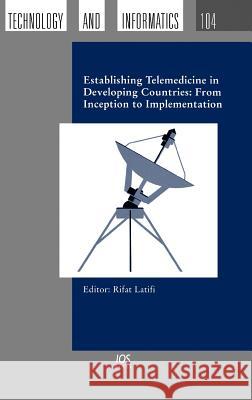Establishing Telemedicine in Developing Countries: From Inception to Implementation » książka
Establishing Telemedicine in Developing Countries: From Inception to Implementation
ISBN-13: 9781586034238 / Angielski / Twarda / 2004 / 233 str.
Telemedicine and telehealth development has brought hope to developing countries and their most remote areas, yet leaves very significant questions and anxiety among those hoping to maintain status quo of current medical practices. When it comes to telemedicine and its applications, most countries are actually in the same boat. Even in the most developed countries' hospitals, telemedicine is still not practiced. Advanced technology such as computers, diagnostic imaging, robotics, voice activated machines, and remote controls have changed the hospital and operating room theaters around the western world. Essentially, geography and distance have become abstract nouns and are meaningless in modern times. At the same time, the world equilibrium has not followed the punctuation of an industrial world directed by the broad bandwidth. Nonetheless, the patient has become an educated and informed consumer who questions the decisions of the practitioner and demands explanations and evidence-based medical approaches. The physician's expertise is validated through the Internet and other forms and the patient insists on care that is up to current world standards. This multiple author book, represents a serious attempt to analyze the most important issues in the field of telemedicine and telehealth. It presents concrete assistance to those who would like to explore the possibilities of establishing telemedicine and telehealth in their countries as well as those individuals who would like to establish these programs in developing areas or in countries that simply do not have existing telemedicine networks.











